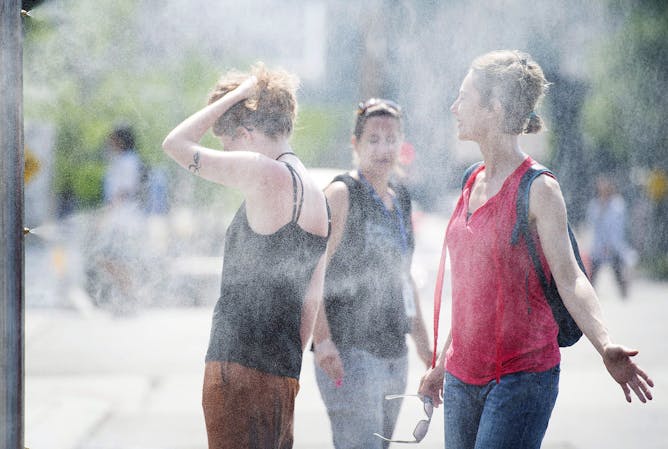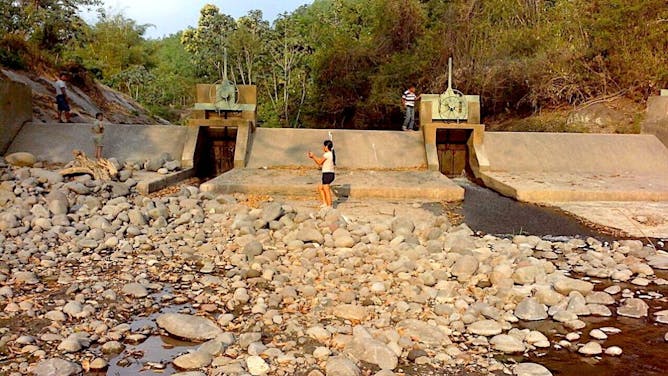|
The Toronto International Film Festival kicks off today. The first feature film ever made in the Haida language is premiering at the festival. Today in The Conversation Canada, Leonie Sandercock from University of British Columbia gives us a behind-the-scenes look at Sgaawaay K'uuna (Edge of the Knife).
As the summer winds down, it won’t be long before Canadians are complaining about the bitter cold instead of the sweltering heat. But how do increasingly extreme temperatures affect our mental health? New research suggests climate change could lead to an increase in suicide rates.
Demand for renewable energy is growing. That has fuelled a clash between its producers and those affected by its production. Simon Granovsky-Larsen from University of Regina explains why farmers are resorting to industrial sabotage in Guatemala.
And finally, which city is more livable: Vancouver or Calgary? Urban studies professor Meg Holden from Simon Fraser University takes issue with The Economist’s latest rankings.
|

High school honour roll student Trey Arnold Rorick acts in the ‘Edge of the Knife.’ Rorick also works as a Cultural Interpreter at the K_ay Ilnagaay Haida Heritage Center.
Facebook
Leonie Sandercock, University of British Columbia
Sgaawaay K'uuna (Edge of the Knife) is a feature film project that works to entertain audiences and revitalize language.
|

People use misters to cool down in Montréal, Monday, July 2, 2018, during a heatwave in the city.
THE CANADIAN PRESS/Graham Hughes
Francis Vergunst, Université de Montréal; Helen Louise Berry, University of Canberra; Massimiliano Orri, McGill University
Climate change poses a threat to our mental health. Building connected communities is one way to combat a rise in suicide rates as global temperatures increase.
|

A river dike on the Rio Nil near El Asintal, Guatemala.
(Consejo de Comunidades en Defensa del Ambiente del Municipio de El Asintal)
Simon Granovsky-Larsen, University of Regina
Increased use of renewable energies could help curb climate change, but the water required for their production has dispossessed rural Guatemalans.
|

Calgary beat out Vancouver on this year’s most livable city index issued by the Economist magazine.
Flickr
Meg Holden, Simon Fraser University
Vancouver lost out to Calgary as Canada's most livable city this year. Why? Is it the high cost of housing or is it the city's 'neighbourhood first' method that sometimes creates business instability?
|
Culture + Society
|
-
Argyro Avgoustaki, ESCP Europe ; Hans TW Frankort, City, University of London
Increased work effort not only predicts poor well-being, it may be bad for your career.
|
|
Health + Medicine
|
-
Alexander Holden, University of Sydney
There are a few options for whitening your teeth, but they're not all equally safe.
|
|
Science + Technology
|
-
Keith Martin, Royal Holloway
Researchers used a fax machine that wasn't even connected to the internet to break into a computer network.
|
|